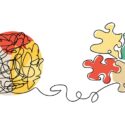
Let us lead with authority and create a learning environment says Jean Gamester
As an Executive Assistant your job requires you to lead the leaders – and to manage other leaders. This requires a whole new set of skills and ways of operating. It’s not just about knowing what needs to be done and telling others to do it. Instead, you have to guide those leaders and inspire them to deliver results through their teams. That way you become a Super Leader.
Here are three top tips, based on some of my favourite leadership books, to help us become Super Leaders.
Ditch the detail and lead with authority
In his book “Leadership that Gets Results” Daniel Goleman talks about a range of leadership styles and how effective they are. The most powerful style he describes is “The Authoritative Style” which focuses on inspiring people to come along together to achieve a goal. The leader describes the outcome and gets buy-in to that outcome, but leaves the method to the leader on the ground. We ask them questions about what would help them achieve their goals rather than giving them our own answers.
When we rise above the day-to-day and energise our people to focus on how they can get their people to find ways to achieve the goal, then we can all grow, we can all play a role in achieving.
Create a learning environment
In a fabulous tribute to the All Blacks rugby team, James Kerr wrote “Legacy”, about how they manage consistently to lead the world in their sport. One of his key focus areas is about creating a learning environment – “Leaders are Teachers” he says. So when we seek to help our leaders make things happen, we need to build a relationship of trust between us and them, so that we can coach them and give them feedback.
For example, in Toastmasters, we are already pretty good at giving feedback – it is how we create world-class speakers. The magic is firstly in having an environment where it is normal for people to give each other feedback – we have permission from each other to help each other to get better. Next, it is in closely and objectively observing what people are doing and in identifying what they do well so that it can be reinforced and celebrated. Only then, do we start to provide tips for how they can be more successful in the future. As we are continuously taking action and continuously receiving feedback, we get better and better at what we do.
Work to strengths, fill the gaps
The third book I would recommend is “Strengths Based Leadership” by Tom Rath and Barry Conchie. Their message is that we should stop sucking the energy out of ourselves by trying to fix everything we are not good at. Instead, let’s work out what we are good at, get really, really good at those things, and build teams around us of people who have the other skills we need.
I’ve just spent the weekend with the incoming leadership team of our Toastmasters district, helping them to prepare to be the Super Leaders of our district. What we found was that between them they have a huge range of strengths – some of them have fantastic skills in driving action, some in relationship building, some in developing strategy. We also found that although they all have the ability to inspire others (they wouldn’t have been elected or appointed to their roles if they couldn’t), being inspirational isn’t the top skill area they have. So they will play to their strengths, and make sure that they find others as part of their extended team who can play that role for them.
Being a Super Leader
Leading leaders is a lot harder than being a leader on the ground. We need to not only have developed the skills to do that front line leadership, we need to be able to support others to do it, without constantly interfering! That requires great emotional intelligence – the ability to understand and manage ourselves as well as the ability to understand and manage our relationships with others. To achieve success, let us lead with authority and create a learning environment. Let’s work to our own strengths, and the strengths of those we lead.













